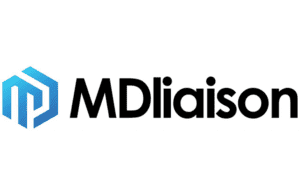 In 2021, Cherese Paloni founded MDliaison to connect healthcare sales reps with health care companies. After working as a sales rep, Paloni determined to address the high turnover rate in the life sciences industry.
In 2021, Cherese Paloni founded MDliaison to connect healthcare sales reps with health care companies. After working as a sales rep, Paloni determined to address the high turnover rate in the life sciences industry.
After determining that the high turnover in the non-health-care-provider community is a symptom of an antiquated onboarding process, Paloni decided to create a network for healthcare sales contractors with established physician relationships.
MDliaison helps life sciences organizations find pre-vetted professionals. The company has created an open marketplace that facilitates the onboarding of qualified candidates. MDliaison ensures that professionals in the network have completed rigorous interviewing, testing and background and qualification checks. Most of the professionals in MDliaison’s network have substantial experience, with 65% having worked for the top five pharmaceutical and biotech companies. The company also serves the needs of health care providers, hospital networks and medical device organizations.
MDliaison boasts that it can reduce a candidate engagement cycle that traditionally took multiple weeks down to a matter of days while lowering operational costs. According to the startup, the increasing sophistication of screening candidates can reduce staff churn.
In the following interview, MDliaison CEO Paloni shares what attracted her to working in the life sciences industry, which projects she finds most compelling and which leadership skills she values most. Paloni has worked in both clinical and medical-business settings, including in pharma settings.
How did you get into the medical industry?

Cherese Paloni
Paloni: I first started in the medical industry on the clinical side, working with emergency psychiatric patients at Vanderbilt Medical Center. I had just graduated with a bachelor’s in psychology and was going into the medical field to help psych patients at that time.
Please describe your work experience with healthcare companies.
Paloni: After being on the clinical side working on the front lines in the ER, I realized how hard it was for psychiatric patients to receive care due to insurance constraints and lack of services. I also saw how medical people went above and beyond for patients and worked very hard, but their employers treated them poorly. I felt that if I wanted to make a difference in how the healthcare system worked for workers and patients, I needed to pivot to healthcare administration.
I went on to work in sales and strategy with various healthcare organizations such as health technology, hospital, physician practice and neurorehabilitation. All the companies I chose to work for had strong patient-focused missions where I still felt that I was making a difference with patients as I had at the beginning of my career, but on the business side.
What projects, past or present, have made you love what you do? What projects are you most looking forward to?
Paloni: I have always loved to connect people and build things. I loved past sales roles when I was taking over a new territory, or it was a new role, and I was able to build our business from nothing into a top territory. This, coupled with being able to help my customers find the facility or product for their patients even if it may not be the service or product I was selling.
When I worked for a neurorehabilitation company, there were only a few resources for brain injury and stroke patients. So I had taken it upon myself to compile a 50-page book on services and facilities for families, physicians and nurses in the Bay Area. That project made me love being in sales and connecting them to those resources to receive proper treatment and rehabilitation.
The projects I get most excited about are working with companies that have a life-changing service or product for a patient, and they are looking to hire the first person to help them get their product in the market. It is a great feeling knowing you made that connection happen.
Describe your biggest leadership challenge. How did you conquer or resolve it, or what was the outcome?
Paloni: I think the biggest challenge in leadership I have faced is running my own company. I am not the expert in every department within the organization, so I must rely on others to be the expert and trust that they will make decisions and do the best job for the organization. Learning trust and being honest about performance are two ways I have conquered this challenge, which has helped move our organization forward.
Talk about your leadership skills. What is the most important lesson you have learned that has guided your career?
Paloni: The most important lesson I have learned in my career is to treat everyone with respect and kindness because you never know when they may circle back into your life again, and you may need them. This helped me when I led teams in my sales career and built relationships with external partners. It has become even more guiding when I started this company, and I needed help from people I have met in my career who could provide me with advice and support.
As I lead my organization, it is still my mantra because we cannot retain or keep top talent and keep our customers by not being respectful and kind.
What more can be done to promote greater participation of young women in the pharma industry today?
Paloni: There are great opportunities for career advancement within the pharma industry, especially in sales. However, pharma companies and other organizations need to help support new reps with mentorship to help guide their career. In addition, there needs to be more transparency in educating about the role of sales in pharma. Most people think it’s a cushy job with a high salary, but that is not true. The position requires a lot of pharmacology training on top of building relationships and educating physicians. Changing that misconception by focusing on the positive impact these roles make on patient care is important.